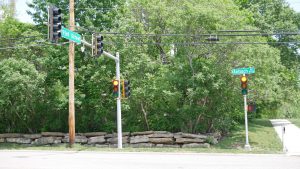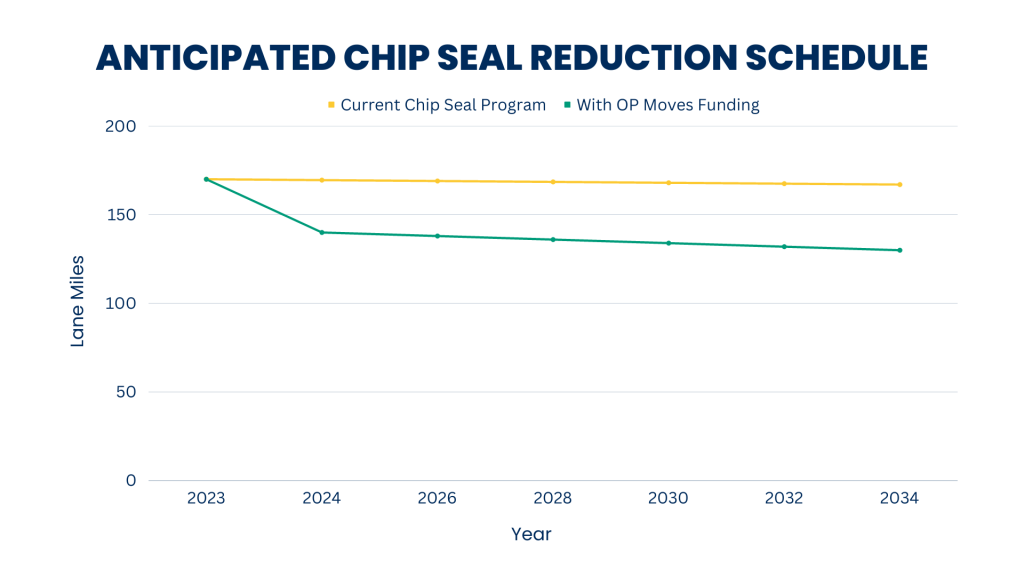OP Moves
OP Moves
In June 2023, the City of Overland Park held a special mail-in ballot election for the OP Moves sales tax.
Overland Park residents approved a dedicated three-eighth cent sales tax to fund maintenance and improvements to City streets and traffic management systems. The OP Moves sales tax replaced the City’s dedicated one-eighth cent (0.125 percent) sales tax with a three-eighths cent (0.375 percent) dedicated sales tax in April 2024.
Revenue from the tax will be dedicated to improving City infrastructure. This includes primarily streets and traffic management systems, but can include related infrastructure such as curbs, gutters, sidewalks, streetlights, storm sewers and more. These programs were developed in response to Overland Park’s growing infrastructure maintenance, preservation and improvement needs.
OP Moves Sales Tax Overview
A resident committee recommended the City spend an additional $28.5 million per year for infrastructure, funded partially with a three-eighth cent sales tax. The three-eighth cent sales tax will raise more than $24 million to improve and maintain the City’s streets and traffic management systems. The three-eighth cent sales tax took effect in April 2024 and will expire in 2034.
Project Outcomes
Funding from the three-eighths cent sales tax is dedicated to sustaining and improving City infrastructure through repairs, rebuilding, rehabilitating, upgrading, constructing and improving public infrastructure.

Street Improvements
- City streets and related infrastructure
- Local, collector and thoroughfare street, bridge and roundabout infrastructure
- Some projects may include curbs, gutters, sidewalks, streetlights, storm sewers, landscaping and green infrastructure

Traffic Management
- Traffic signals
- Traffic control cabinets and technology
- Traffic signs
- Pavement markings
Priority Projects
The following are project areas the City has identified as high priority for the use of infrastructure funding in the next five years. This is not an exhaustive list of all planned projects, but is meant to illustrate areas that are likely to receive investment or reinvestment with funding from the sales tax. With OP Moves funding, the City expects to improve, rebuild, or perform maintenance on all City streets over the next ten years.
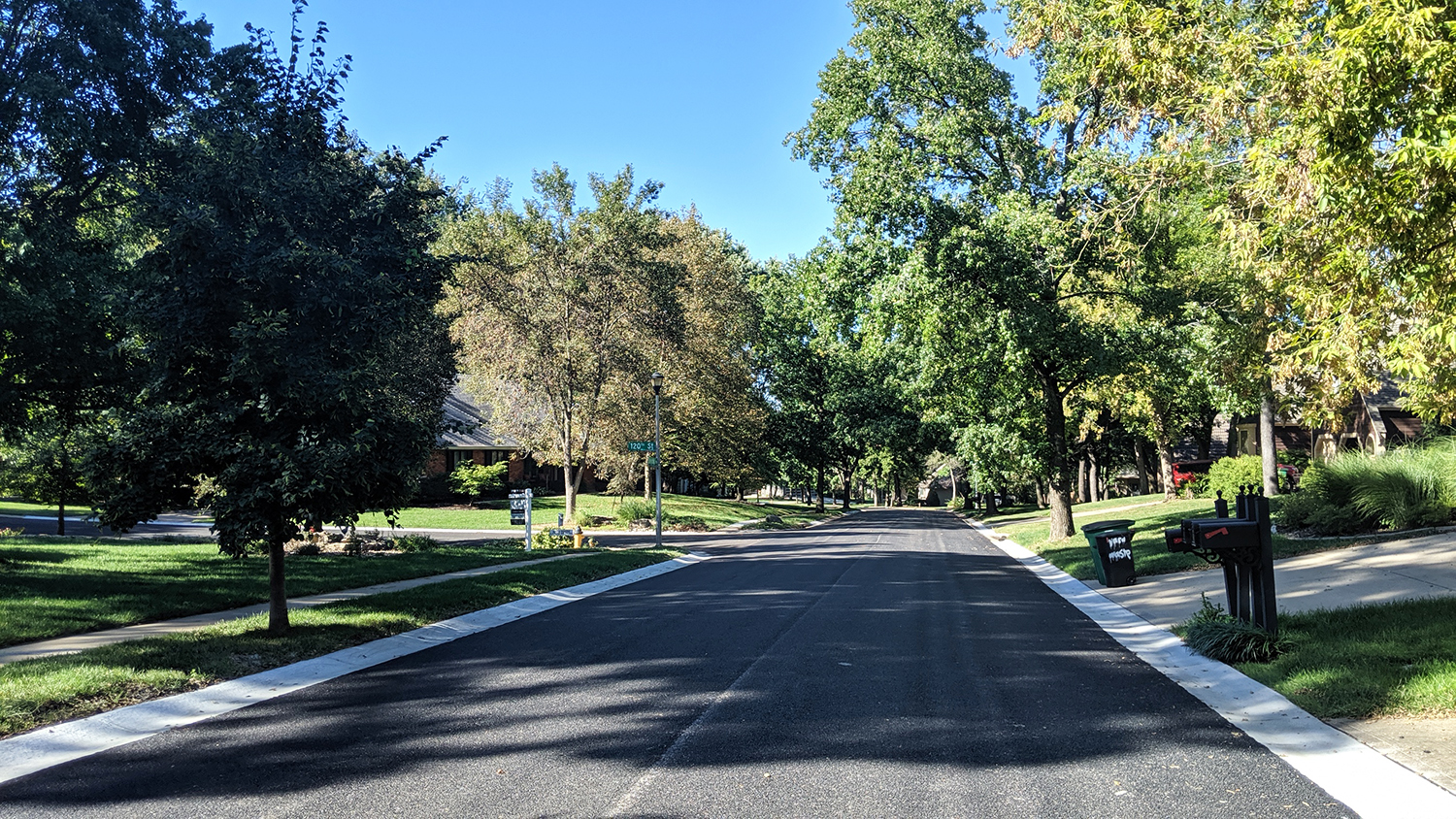
Neighborhood Streets
- Completion of the existing Wycliff project, southwest of 103rd Street and Antioch Road
- Westbrooke South and Moody Hills, east of Switzer Avenue, between 91st and 95th Street
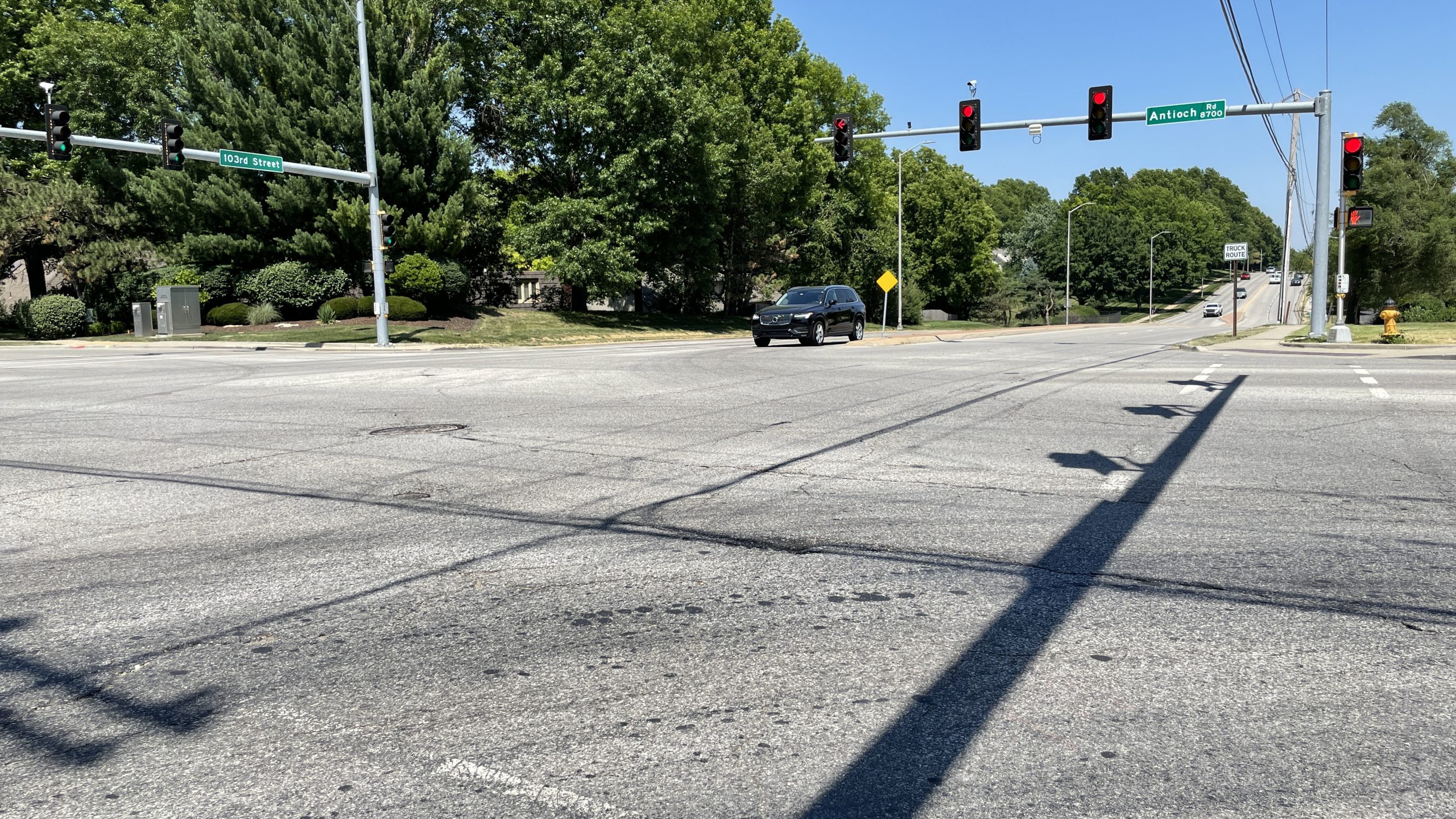
Street Improvements
- Realignment of 82nd Street at Metcalf Avenue
- 77th Street and Metcalf Avenue
- College Boulevard and Metcalf Avenue Mobility Enhancement
- Metcalf from 83rd Street to 87th Street Pedestrian Trail
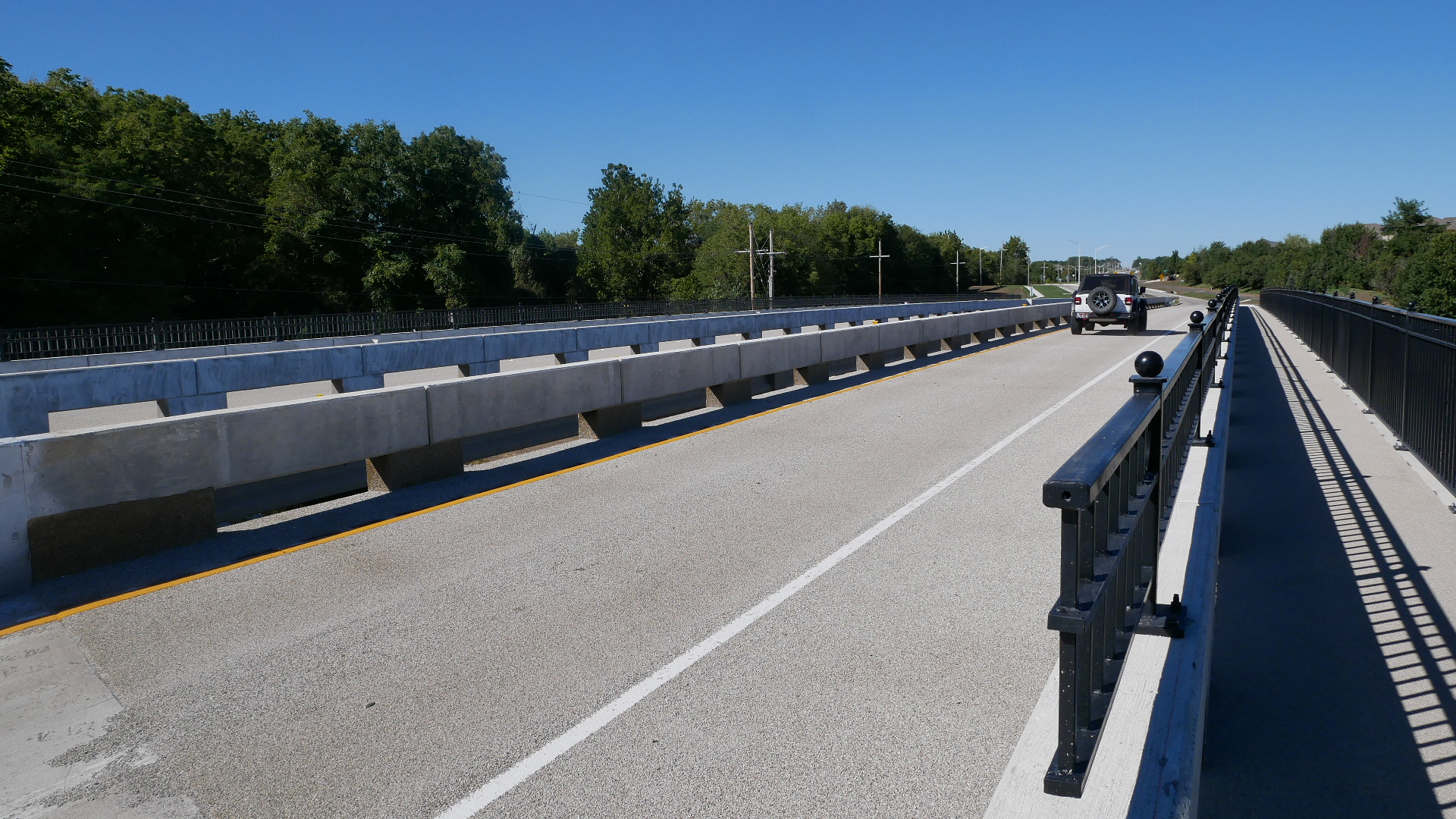
Bridge Infrastructure
- 109th Street Bridge over Indian Creek
- 103rd Street Bridge over Indian Creek, North Branch
- College Boulevard Bridge over Indian Creek
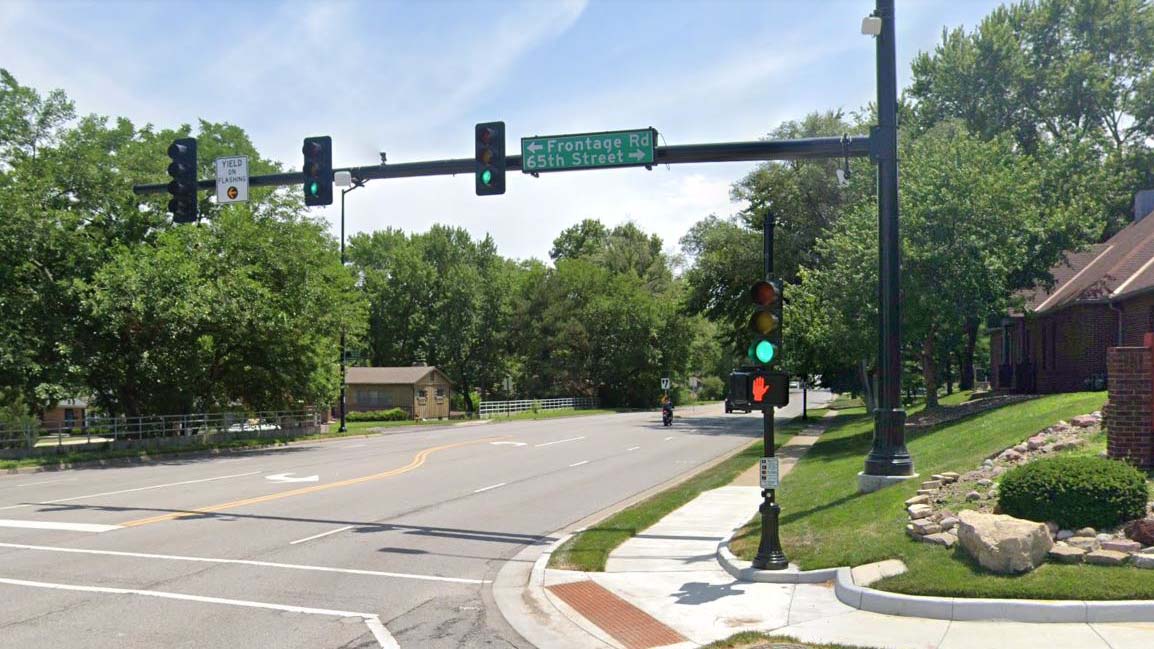
Traffic Management Systems
- College Boulevard and Lowell Avenue
- College Boulevard and Roe Avenue
- 83rd Street and Nall Avenue
- 91st Street and Antioch Road
- 80th Street and Metcalf Avenue
- 95th Street and Lowell Avenue
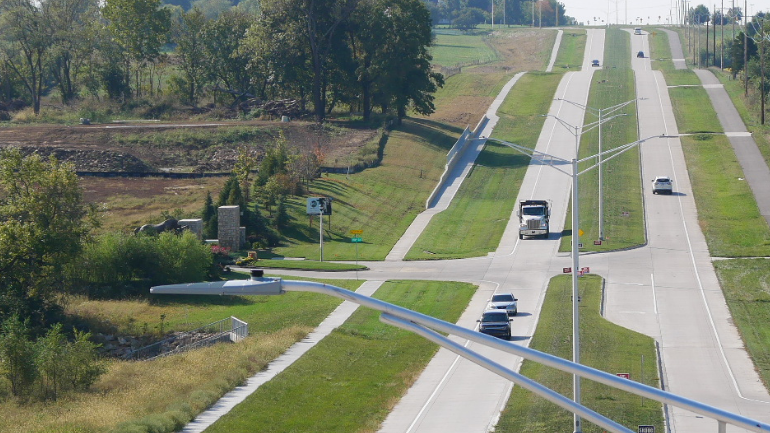
Thoroughfares
- 167th Street, Antioch to Metcalf
- Quivira Road, 179th to 187th
- Switzer Road, 167th to 179th
- Mission Road, Bell Drive to 159th
- Pflumm Road, 175th to 183rd
- State Line Road, 175th to 195th
Timeline of Events
March 6, 2023
The City Council approved the holding of the OP Moves mail-in ballot election in June of 2023.
Early June
The Johnson County Election Office sent out mail-in ballots to all registered voters in Overland Park.
June 1, 2023
The City held the first of two in-person town halls to share information on the proposed sales tax with the community.
June 8, 2023
The City held a telephone town hall to share information on the proposed sales tax with the community.
June 13, 2023
The City held the second and final in-person town hall event to share information on the proposed sales tax with the community.
June 22, 2023
Election day – mail-in ballots were due back to the Johnson County Election Office by noon.
The Johnson County Election Office announced preliminary election results.
April 1, 2024
The new three-eighths cent sales tax takes effect.
FAQ
- What was on the ballot?
During the special election, the initiative that was voted on appeared on the ballot as follows:
Shall the following be adopted?
Shall the City of Overland Park, Kansas (the “City”), be authorized to levy a three-eighth of one percent (0.375%) Special Purpose City Retailers’ Sales Tax within the City of Overland Park, Kansas (also known as “OP Moves”), and to use the revenue from the tax, in whole or in part with any other funds, to fund an infrastructure improvement program consisting of repairing, rebuilding, rehabilitating, upgrading, constructing and improving City streets and related infrastructure, and to fund a traffic management program, including but not limited to, repairing, upgrading and replacing traffic signalization; such tax to take effect on April 1, 2024, the day following expiration of the existing one-eighth of one percent (0.125%) Special Purpose City Retailers’ Sales Tax; such tax to end March 31, 2034; and such tax to be in addition to the ongoing one percent (1.0%) City Retailers’ Sales Tax currently levied?
Yes/No
- How much is three-eighths of a cent?
Below, see how much the three-eighths cent sales tax will levy on the following common purchases:
A gallon of gas
Pre-tax cost: $3.12
Three-eighth cent sales tax applied: $0.01
After tax price: $3.13Air fryer appliance
Pre-tax cost: $79
Three-eighth cent sales tax applied: $0.30
After tax price: $79.30PlayStation 5 console
Pre-tax cost: $499
Three-eighth cent sales tax applied: $1.87
After tax price: $500.87- Is this a new tax?
The City currently has a one-eighth cent dedicated sales tax in effect, which was approved by voters four times. The OP Moves three-eighths cent sales tax will replace the current tax starting April 1, 2024.
- Why a sales tax?
Sales taxes function like user fees, meaning the OP Moves sales tax allows Overland Park residents, workers and visitors to pay their share of street maintenance and improvements. In this way, the OP Moves initiative helps keep other taxes in Overland Park – like property taxes – low.
- What does the sales tax cover?
The new three-eighths cent sales tax will fund necessary improvements to streets and traffic management systems in Overland Park.
These projects include:
- Thoroughfares – Improving safety and capacity of existing unimproved corridors by adding shoulders, curbs, sidewalks, roundabouts, traffic signals and where needed, additional paved lanes.
- Street improvements – Addressing safety, mobility and capacity issues on existing street and intersections by adding or replacing turn lanes, medians, street lights, traffic signals, curbs, sidewalks and more.
- Bridge infrastructure – Repairing, rehabilitating and reconstructing essential components of the City’s more than 127 bridges for safety.
- Neighborhood streets – Reconstructing residential streets that have reached the end of their useful life by replacing pavement and curbs, and adding or replacing storm sewers, sidewalks, streetlights, street trees and more.
- Traffic management – Ensuring traffic continues to move well on City streets by adding traffic lights at intersections where safety and traffic volumes call for it and replacing aging traffic lights and signs.
- Maintenance of existing infrastructure – Investing in repairs and renovation of existing City infrastructure in order to protect and extend the useful life of these important public assets.
- How do I know funds will be used to improve infrastructure?
The City of Overland Park has an impeccable track record and a long history of spending taxpayer money with integrity and only for the purposes allowed by dedicated funds.
Overland Park’s current one-eighth cent sales tax has been in place since 1998. The City of Overland Park set the standard for this funding type, advocating the State legislature to allow residents to choose to fund street improvements with a sales tax.
The dedicated sales tax funding mechanism requires that the City only spend OP Moves funding on streets and traffic management systems, as listed in the ballot language.
Visit opkansas.org/CIP to dig into the financial details and see more about funding sources.
- What are the highest-priority projects?
The professional engineers and technicians in the Overland Park Public Works Department have identified high-priority projects that could be funded with the revenue generated by the OP Moves initiative. Project highlights include:
Thoroughfares:
- 167th Street, Antioch Road to Metcalf Avenue
- Switzer Road, 167th Street to 179th Street
- State Line Road, 175th Street to 195th Street
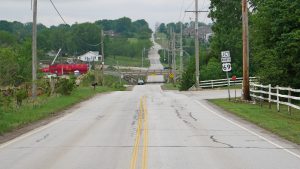
Street Improvements:
- Street and intersection improvements at 77th Street and Metcalf Avenue
- Mini-roundabout at Hemlock Street north of 135th Street
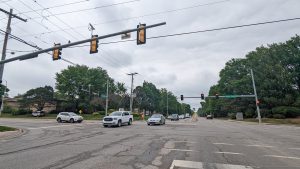
Bridge Infrastructure:
- 103rd Street Bridge over Indian Creek, North Branch
- College Boulevard Bridge over Indian Creek
- Kenneth Road Bridge over Negro Creek
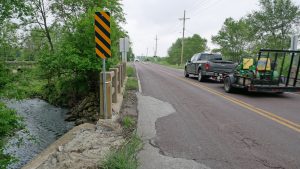
Neighborhood Streets:
- Wycliff, southwest of 103rd Street and Antioch Road
- Westbrooke South, east of Switzer Avenue, between 91st and 95th Street
- Moody Hills, east of Switzer Avenue, between 91st and 95th Street
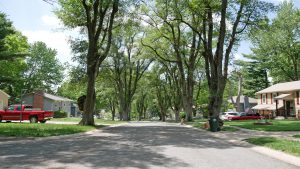
Traffic Management Systems:
- How much does it cost to build a street?
It costs approximately $3.6 million to build a mile of a typical residential street in Overland Park. This graphic shows both the elements required for streets to meet engineering standards and the costs associated with each of those elements.
- Will we still have chip seal on our streets?
The approval of the OP Moves initiative ensures there will be an immediate 18% reduction in the use of chip seal beginning in 2025. Funding from OP Moves will also allow the City to perform more rehabilitation work, including mill and overlay, asphalt and concrete methods to keep streets in good condition.
- Why can’t the City eliminate the use of chip seal with the additional funding?
Reducing the City’s use of chip seal requires increasing the use of other types of street maintenance, including asphalt and concrete. These types of projects are more difficult to complete in a timely manner because of limited availability of contractors and others in the supply chain. Additional funding through the new three-eighths cent sales tax levy would not be able to fund the complete elimination of chip seal usage by the City.
The following table illustrates how chip seal compares to other street preservation methods in cost and expected longevity:
Project Type Cost Per Lane Mile Expected Longevity Chip seal $19,700 7 years Overlay $183,000 10 years Total reconstruction $1.8 million 50 years - How long will the three-eighths cent sales tax be in effect?
The OP Moves three-eighths cent sales tax will be in effect from April 1, 2024 to March 31, 2034.

